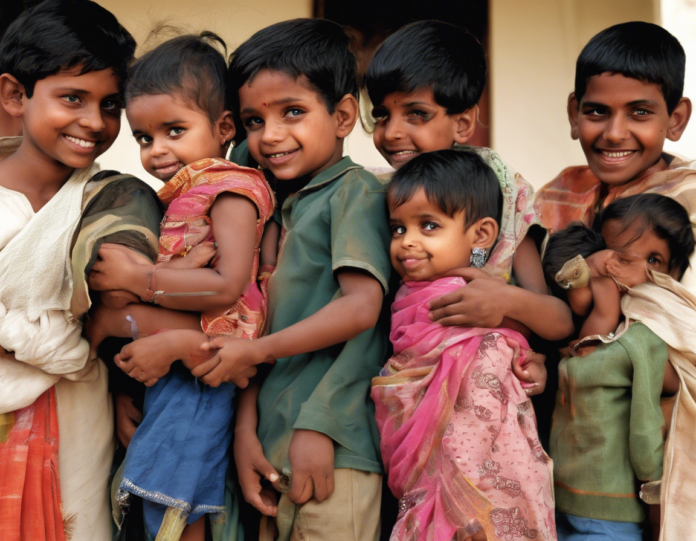Introduction
Adopting a child is a heartwarming decision that can change your life and the life of a child forever. In India, adoption is a beautiful way to grow your family while providing a loving home to a child in need. However, the process can seem daunting and complex. This comprehensive guide aims to provide you with all the information you need to navigate the adoption process in India smoothly and successfully.
Types of Adoption in India
In India, there are primarily three types of adoption recognized by the law:
1. Domestic Adoption: This is when Indian citizens or Non-Resident Indians (NRIs) adopt a child who is a citizen of India.
2. Inter-country Adoption: This involves the adoption of a child from India by foreign nationals or NRIs residing abroad.
3. Relative Adoption: Adoption of a child by a relative, such as a grandparent, aunt, uncle, or cousin.
Legal Framework for Adoption in India
The legal framework for adoption in India is primarily governed by the Juvenile Justice (Care and Protection of Children) Act, 2015. This act outlines the procedures and guidelines for the adoption of children in need of care and protection. The Central Adoption Resource Authority (CARA) is the central authority in India that regulates and monitors in-country and inter-country adoptions.
Eligibility for Adopting a Child in India
To be eligible to adopt a child in India, prospective parents must meet the following criteria:
1. The adoptive parents must be physically, mentally, and emotionally stable.
2. The adoptive parents must be financially capable of providing for the child.
3. The minimum age difference between the child and either of the adoptive parents should be at least 25 years.
4. Single women are eligible to adopt a child of any gender. However, single men can only adopt boys.
The Adoption Process in India
The adoption process in India involves several steps, including:
1. Registration: Prospective adoptive parents must register online with CARINGS, the online portal of CARA.
2. Home Study: A social worker conducts a home study to assess the suitability of the prospective adoptive parents.
3. Child Referral: Once the home study is complete and approved, the adoptive parents will receive a child referral from CARA.
4. Acceptance: After receiving the child referral, adoptive parents have the option to accept or reject the referral.
5. Pre-adoption Foster Care: The child is placed in pre-adoption foster care with the prospective adoptive parents for a minimum period of two months.
6. Court Proceedings: The final legal formalities, including court proceedings, are completed to grant legal custody of the child to the adoptive parents.
Documents Required for Adoption in India
Prospective adoptive parents must submit the following documents as part of the adoption process:
1. Identification and address proof.
2. Marriage certificate (if applicable).
3. Income proof.
4. Medical certificates certifying good health.
5. No-objection certificate from employers.
6. Police verification report.
7. Home study report.
Challenges in the Adoption Process
While the adoption process in India aims to streamline and safeguard the adoption of children, there are certain challenges that prospective adoptive parents may face, such as:
1. Lengthy paperwork and documentation requirements.
2. Lack of transparency in the selection and matching of children with adoptive parents.
3. Delay in court proceedings and legal formalities.
4. Limited availability of children for adoption due to complex procedures.
Post-Adoption Support Services
After the adoption process is complete, adoptive parents may require support and guidance to help integrate the child into their families smoothly. Post-adoption support services in India include:
1. Counseling services for both parents and children.
2. Support groups for adoptive parents to share experiences and seek advice.
3. Educational and developmental resources for the adopted child.
Frequently Asked Questions (FAQs)
1. Can single men adopt a child in India?
Single men are allowed to adopt male children in India.
2. What is the minimum age requirement to adopt a child in India?
Prospective adoptive parents must be at least 25 years older than the child they wish to adopt.
3. How long does the adoption process in India take?
The adoption process in India can vary in duration but typically takes around 6 months to a year to complete.
4. Are there any restrictions on the number of children one can adopt in India?
As per the guidelines, prospective adoptive parents can adopt a maximum of two children of the same sex or one child of each sex.
5. Can foreigners adopt a child from India?
Foreign nationals and Non-Resident Indians (NRIs) are eligible to adopt a child from India through inter-country adoption procedures.
In conclusion, adopting a child in India is a rewarding journey that requires patience, dedication, and a genuine commitment to providing a loving and nurturing environment for the child. By familiarizing yourself with the legal procedures, eligibility criteria, and adoption process, you can embark on this life-changing experience with confidence and joy.

